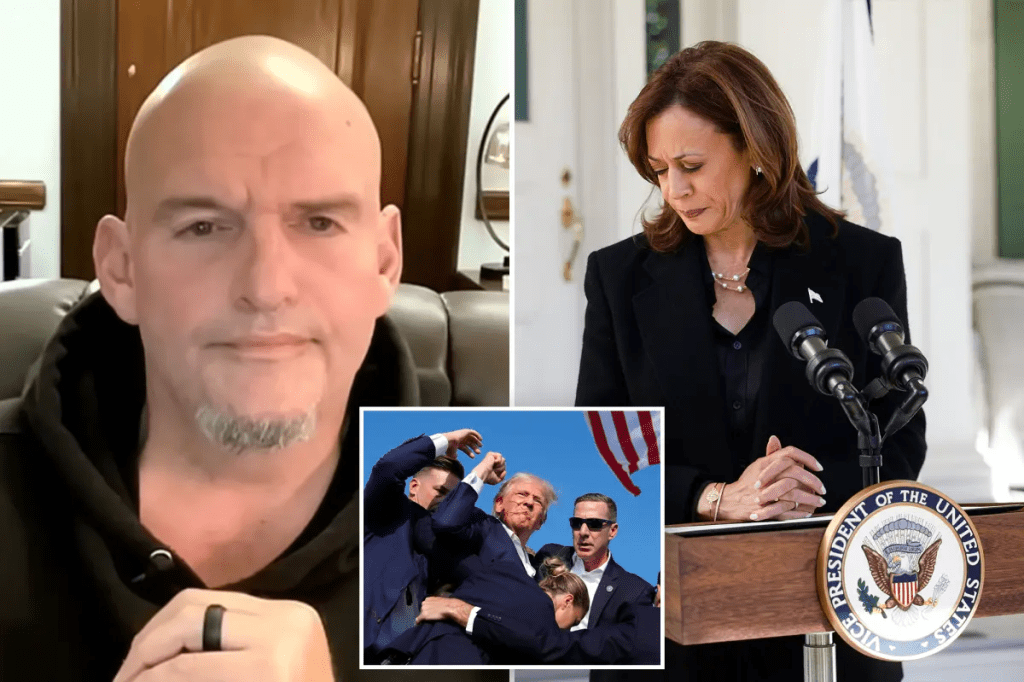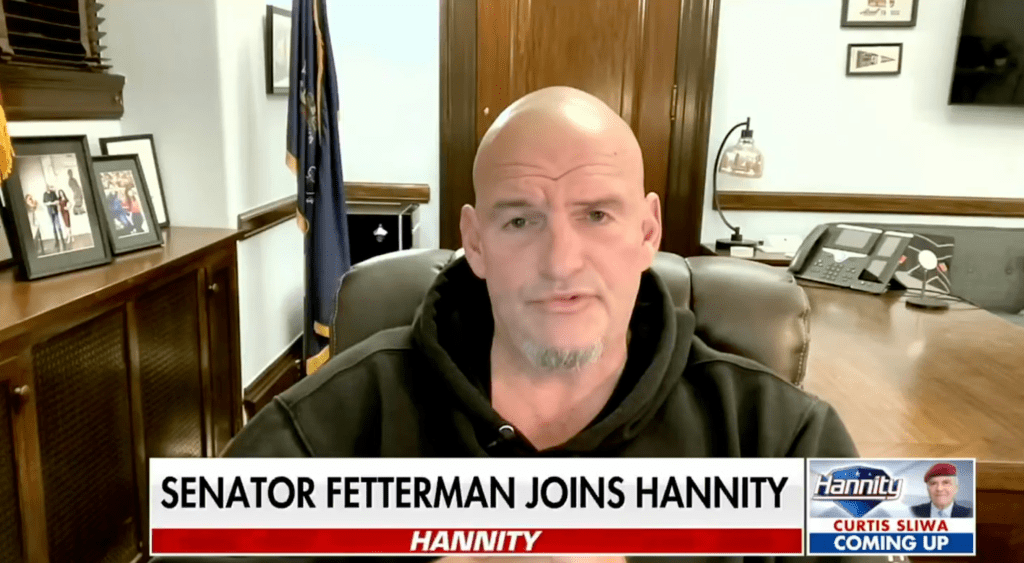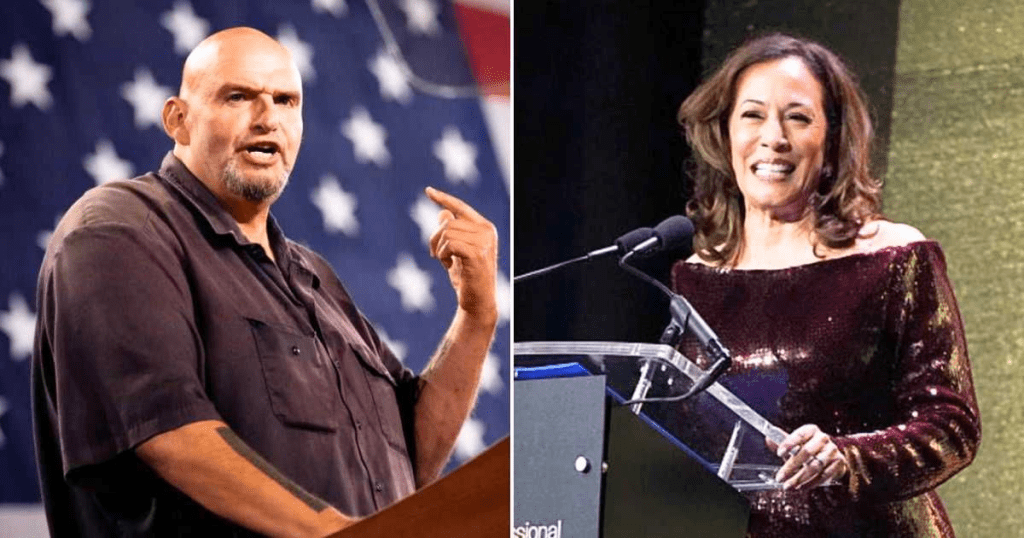Democrat Sen. John Fetterman Slams Kamala Harris, Says Party “Lost the Plot” and Alienated Voters by Calling President Trump a Fascist
Democratic Senator John Fetterman is once again breaking ranks with his own party — this time over its rhetoric toward President Trump and his supporters. In an unfiltered interview Wednesday, Fetterman said the Democratic Party “lost the plot” the moment then-Vice President Kamala Harris publicly called Trump a “fascist,” arguing that such language alienated voters and contributed to the collapse of the party’s message heading into the 2024 election.

Speaking with Sean Hannity, Fetterman recalled the fallout from Harris’s 2024 comments, which compared Trump to authoritarian leaders. “If you call the president or someone like that a fascist, you are effectively calling the people who are going to vote for him — then they must be fascists too, or they support fascism,” Fetterman said. “And that’s just not true.” He added that this kind of extreme labeling turned off ordinary Americans who simply disagreed on policy, not democracy itself.
Fetterman said that moment, when the White House embraced the “fascist” label, was when his party “lost itself.” He pointed to what he described as an overreliance on moral panic instead of outreach, suggesting Democrats became more focused on condemnation than persuasion. “It was a mistake. That’s when we lost the plot,” he said.
The Pennsylvania senator, who has carved out a reputation as a blunt and unpredictable voice within his party, has increasingly distanced himself from progressive orthodoxy. While once aligned with the left’s messaging, he’s recently taken public stands defending border security, calling for law-and-order policies, and criticizing what he sees as elite posturing from Democratic leadership.

Fetterman’s comments have sparked waves across social media and cable news, where conservatives praised his honesty while progressives accused him of giving political cover to Trump. Yet Fetterman insists his critique isn’t about protecting Trump but about saving his party from further electoral collapse. “I happen to know and love a lot of people who voted for the president,” he said. “They’re not fascists. They just have different priorities. They love our country, too.”
He also condemned the growing tendency among Democrats to use language equating Trump with Adolf Hitler — a comparison he called “disturbing” and “counterproductive.” “Once you go there, there’s no room left for debate or trust,” Fetterman said. “You can’t win hearts and minds when you start by calling your opponents Nazis.”

Political analysts say the remarks underline a larger identity crisis for Democrats after the 2024 election, in which the party lost critical working-class and independent voters. By embracing rhetoric that paints Trump and his base as enemies of democracy, strategists argue, Democrats risk alienating the very constituencies they once relied on.
Fetterman’s latest comments are likely to deepen tensions within the party, where many still see Harris as a central figure despite her bruising electoral loss. His willingness to challenge the Democratic mainstream — and his visible respect for voters on the other side — has made him a rare crossover figure in today’s polarized political climate.

“Demonizing half the country is not a winning strategy,” Fetterman said. “We’ve got to stop acting like disagreement equals evil.”
His words come amid renewed Democratic infighting over messaging, leadership, and direction. For now, Fetterman remains one of the few high-profile Democrats openly calling for a reset — and for a return to what he describes as “common-sense politics,” rooted in respect rather than outrage.



